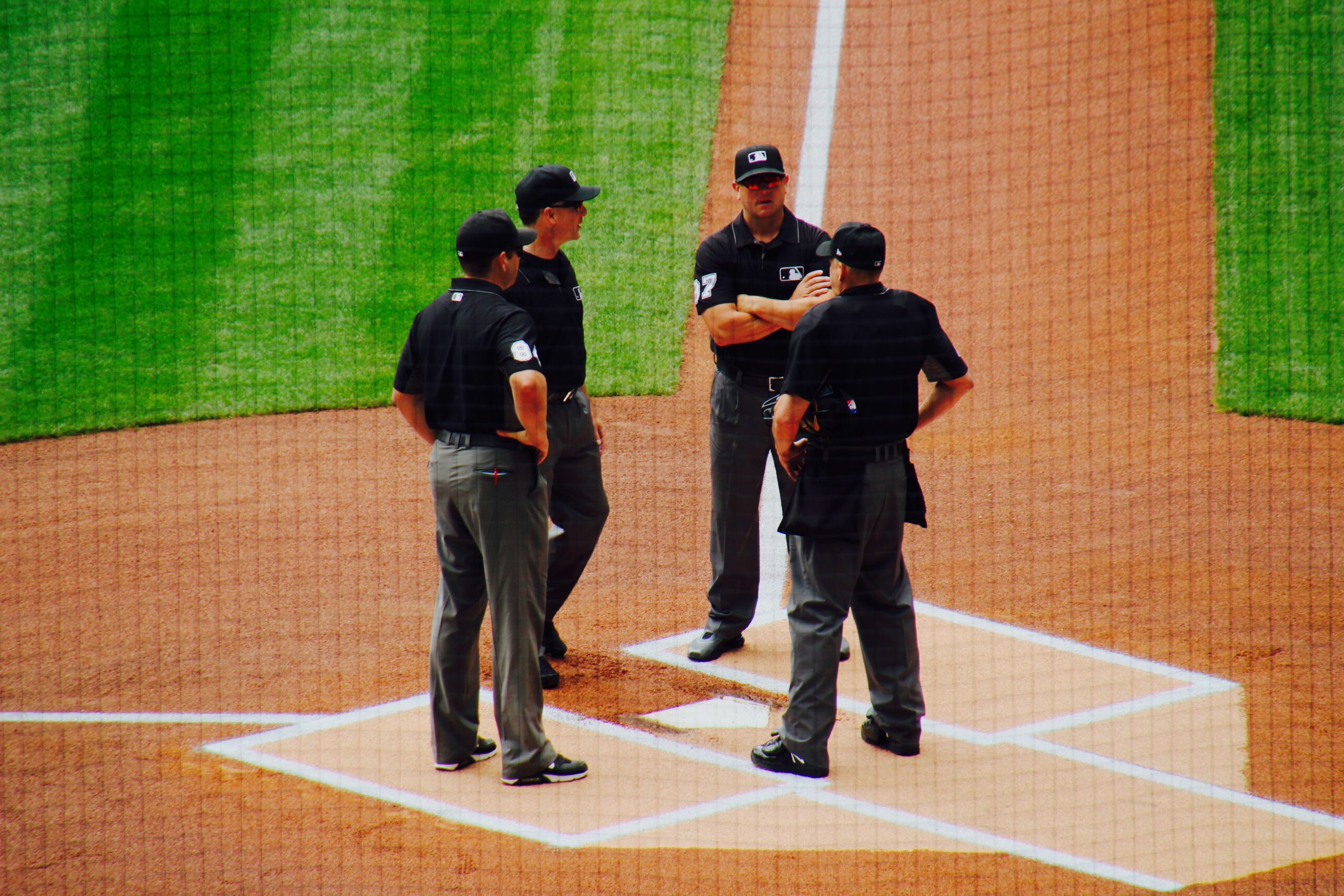Image: MLB Umpires pictures from Flickr (photo by Andy Ziegler)
This MLB season has been nothing short of interesting, with the Atlanta Braves being plagued by injury and the Chicago White Sox setting themselves up to break the record for most losses in a season. Most recently, in dramatic fashion Tampa Bay Rays reliever Edwin Uceta and Rays manager Kevin Cash both received a suspension and fines for throwing a pitch at Philadelphia Phillies outfielder Nick Castellanos and aggravating a bench-clearing. Fines and suspensions are normal in the league, but just how far do you have to go to receive one? Let’s take a look at the MLB’s history with fines and suspensions in the last few years.
The most fines this year have been given out for gambling, following the suspensions of five players on June 4 for violating sports betting policies and laws in the league. San Diego Padres INF/OUT Tucupita Marcano was placed on the permanently ineligible list for this offense, banning him from ever playing in the league again. Other suspensions at this time included Oakland Athletics pitcher Micheal Kelly, as well as Jay Groome, Jose Rodriguez and Andrew Saalfrank, all minor league players. The usual suspension time for breaking the sports betting rule is one full year of play. This rule also has accompanying mentions of other suspendable offenses, such as purposefully playing badly to lose a game, getting a gift or sum of money for beating an opposing club and bribing an umpire.
Major League Baseball has always been tough on its players in terms of rules and fines in its long tenure. One of the highest ever recorded fines was against Alex Rodriguez in 2013 during his season with the New York Yankees for using performance enhancing drugs (PEDs). Rodriguez was fined $25 million, and was suspended for a full 162-game year; this $25 million fine was worth Rodriguez’s entire salary for a 162-game season. While there has not been a change on the inspection of field players and batters for PEDs, there has been a recent change to the way the league inspects pitchers. With the introduction of the pitcher glove check in 2021, the number of suspensions for PEDs and what the league defines as “sticky stuff,” has gone down exponentially.
So what is this “sticky stuff” anyway? Commonly known as “Spider Tack,” the gooey substance is often used by pitchers to create more spin on their pitches, making them harder to hit. As Sports Illustrated writer Tom Verducci mentioned in 2023, the use of the substance had become so rampant that the players could “hear pitches ripping off the sticky fingers of pitchers like Velcro.” After the MLB began to crack down on the use of Spider Tack by introducing more procedural checking of gloves, belts, hats and hands, the league saw an uptick in batting average.
This rule has quickly become applied to every inning a relief pitcher plays, as well as two innings per starting pitcher. According to the MLB, managers may also request for a pitcher to be checked if they believe the pitcher is using a foreign substance to create spin on pitches. The full suspension for breaking this rule is a 10-game stint. This season, only two pitchers have been ejected and suspended for the use of a foreign substance: New York Mets reliever Edwin Diaz and Houston Astros starting pitcher Ronel Blanco. Pitchers may appeal the decision, but if they are found to be liable for breaking the rule, they must still complete their 10-game suspension.
So what’s the issue here? Many different pitchers and clubs in the league have mentioned that they don’t understand the difference between what is and isn’t “sticky stuff.” A number of pitchers around the league use sweat and rosin on their hands to increase their grip, but what if that sweat and rosin is miscalculated as an illegal substance? While numerous players have stated that they think this added rule is better for baseball and for the league, it is also important to take into account the statements made in frustration by pitchers around the league.
What we do know is that the MLB has never taken breaking the rules lightly. With changes happening every season, it would be no surprise to any fan or player for the league to add more rules that result in consequences of suspensions and fines.
Spencer Kerrigan is a second-year Media and Culture major with a journalism minor. sk1011194@wcupa.edu

